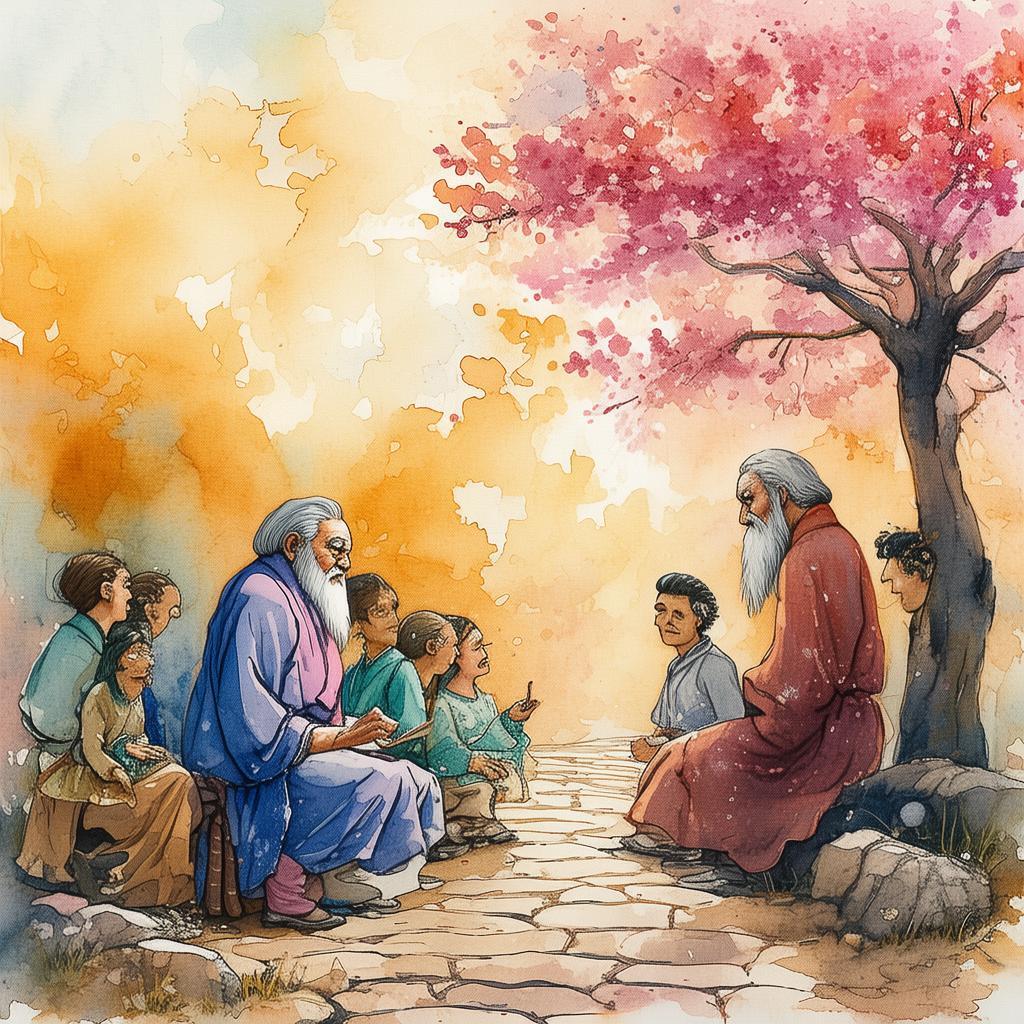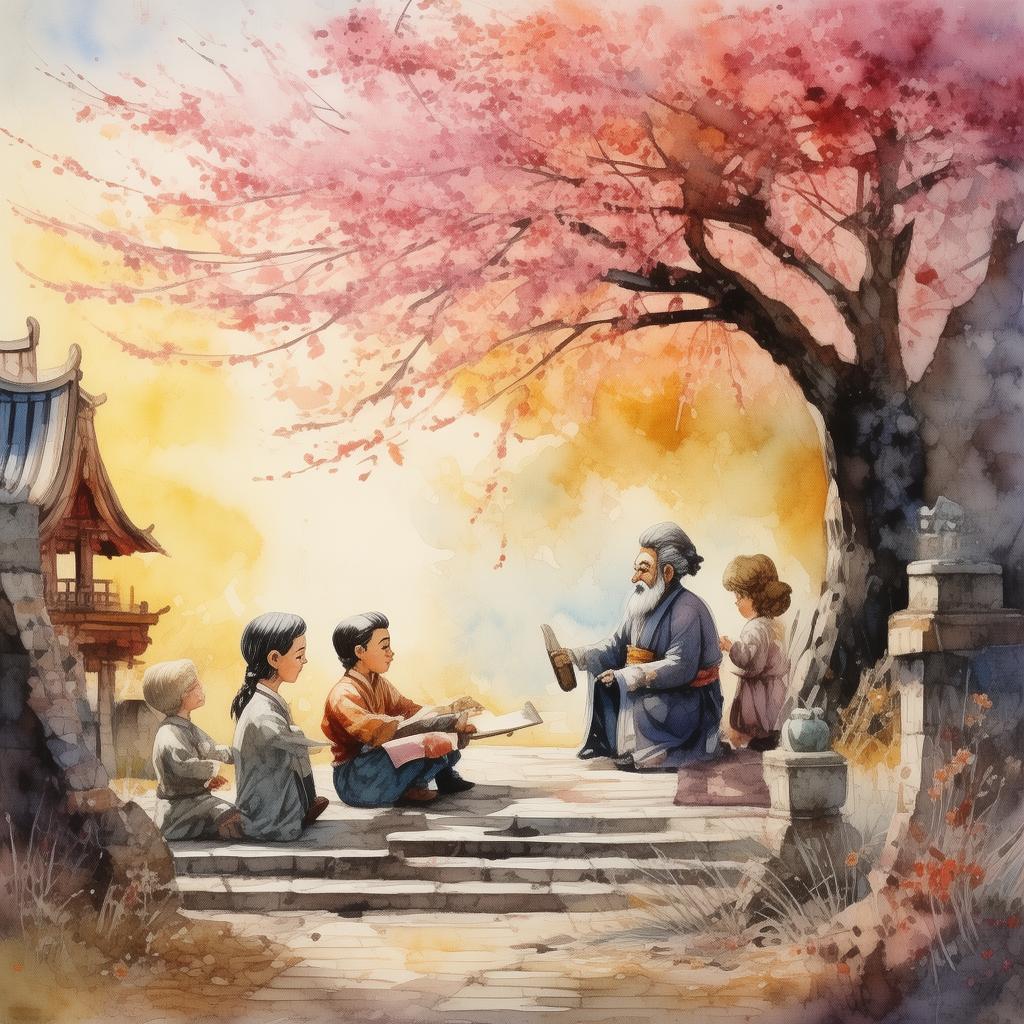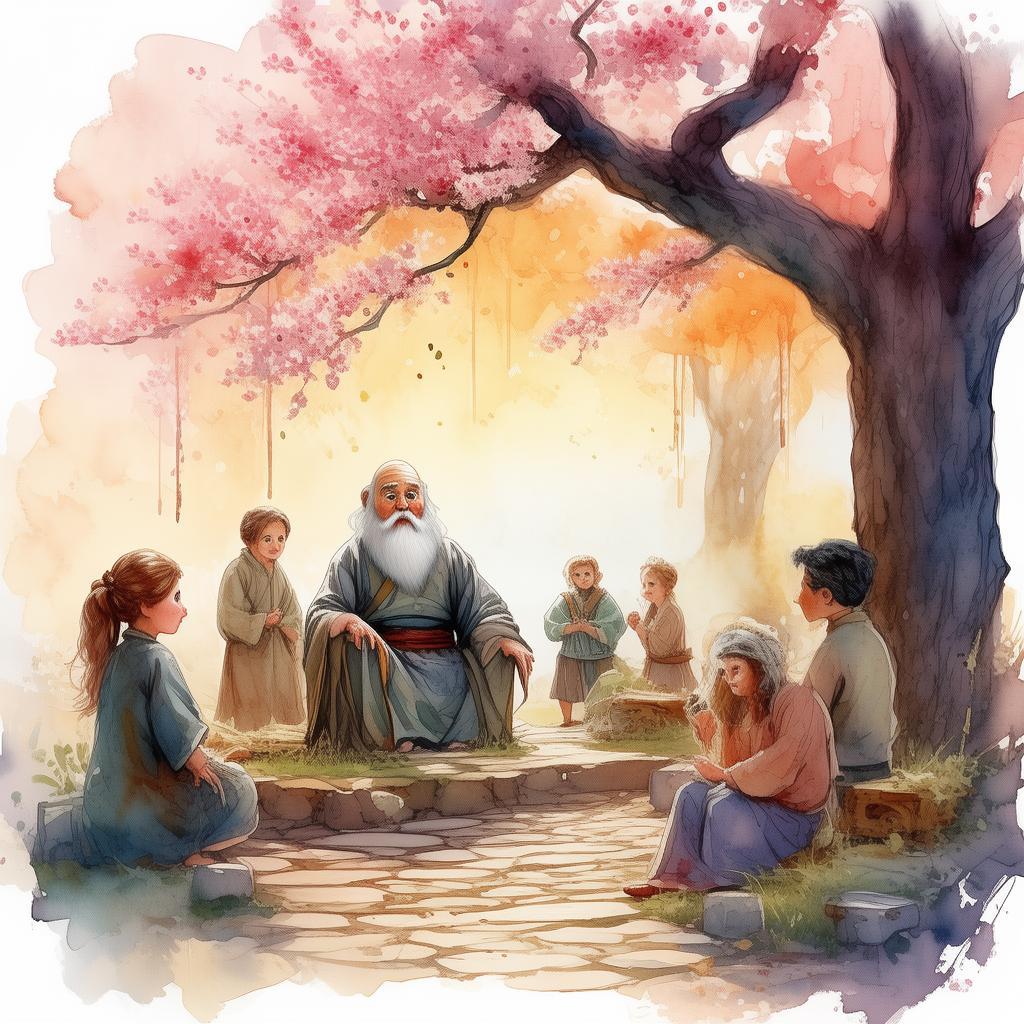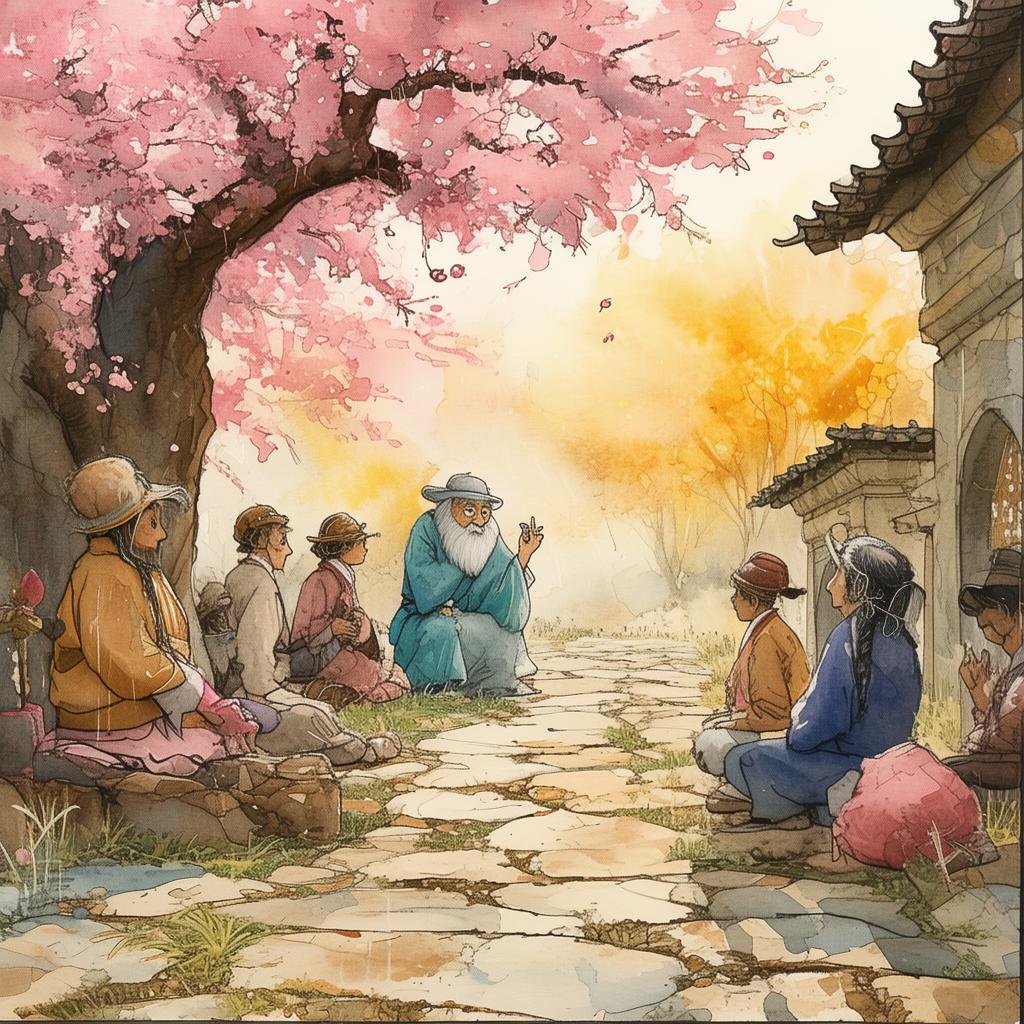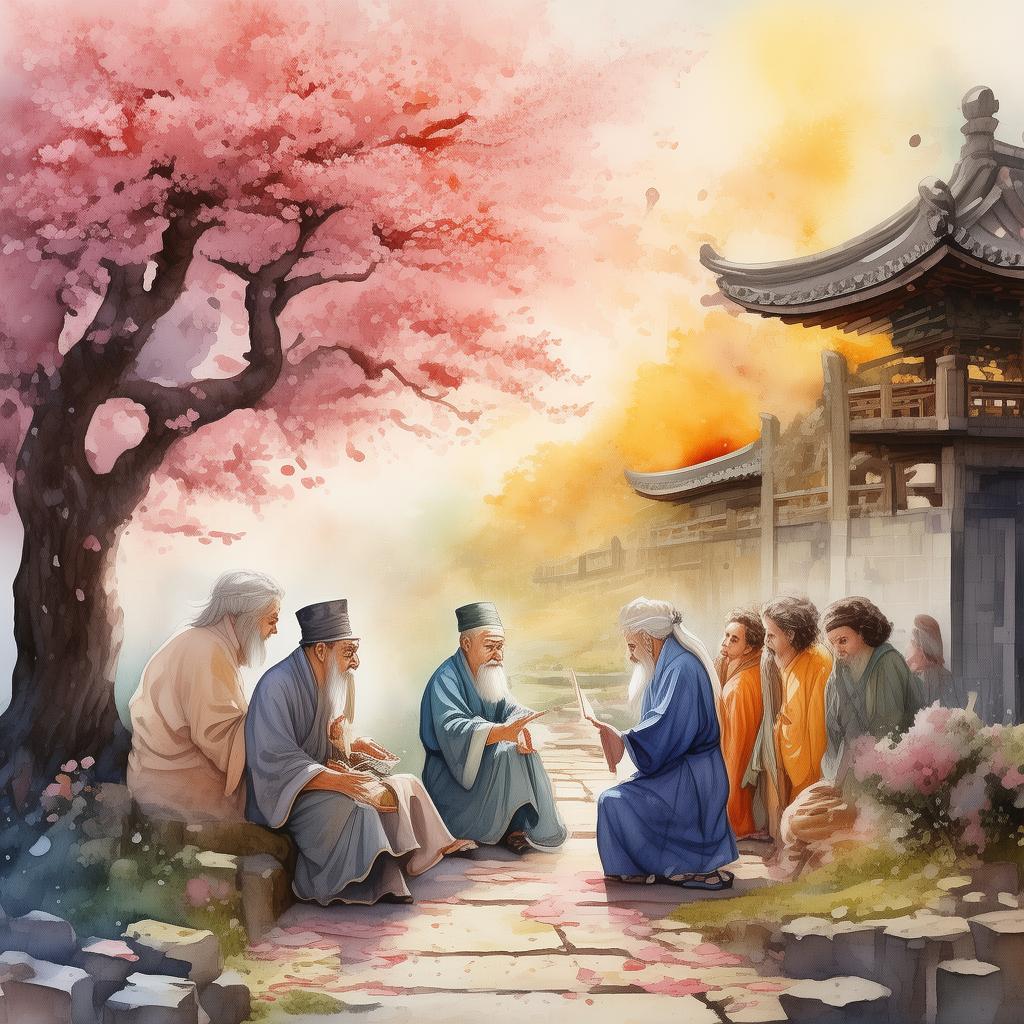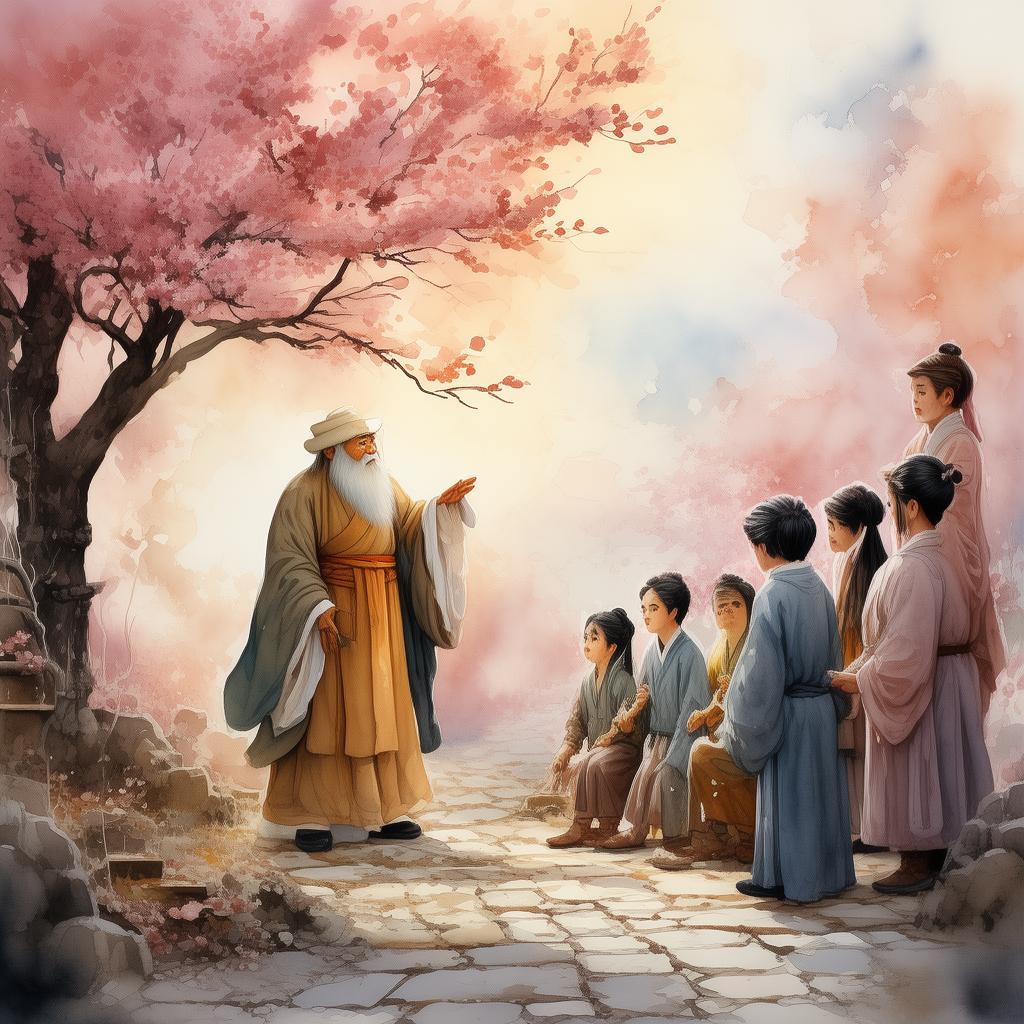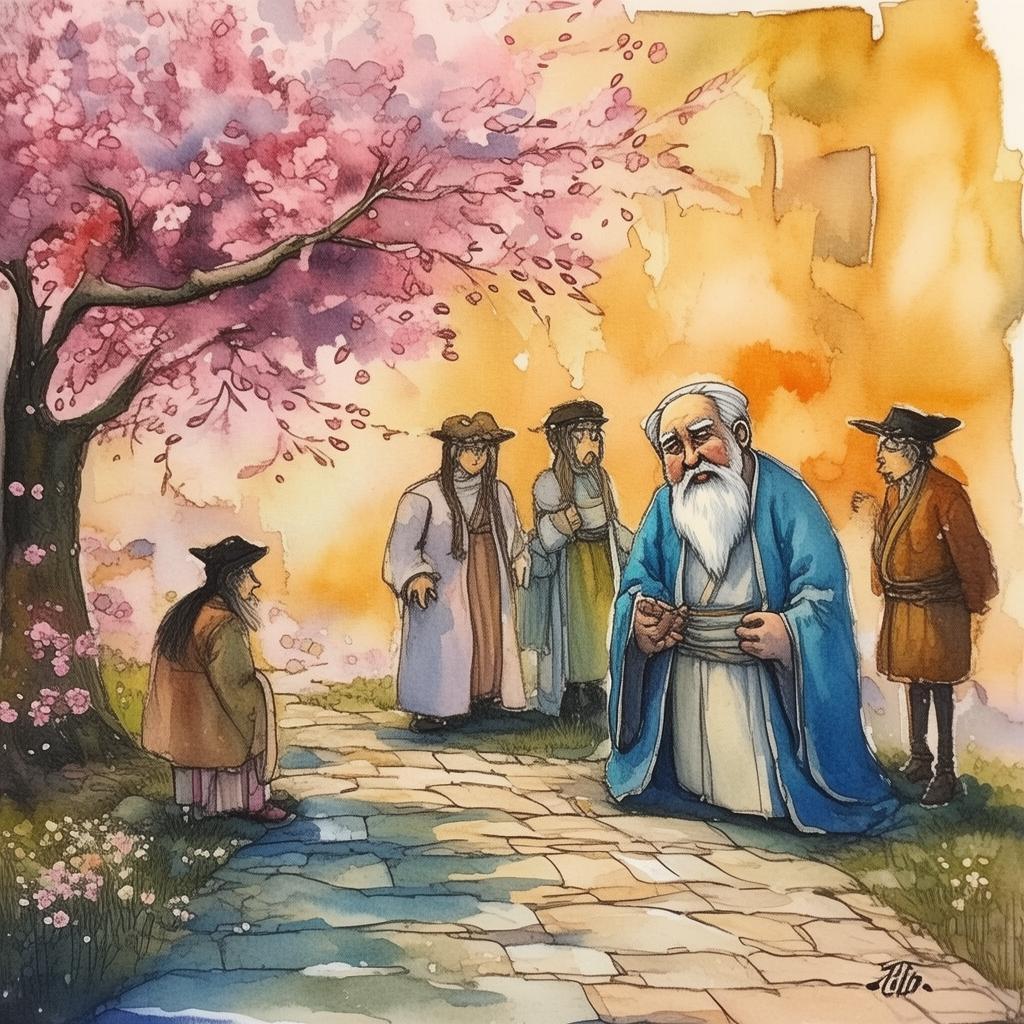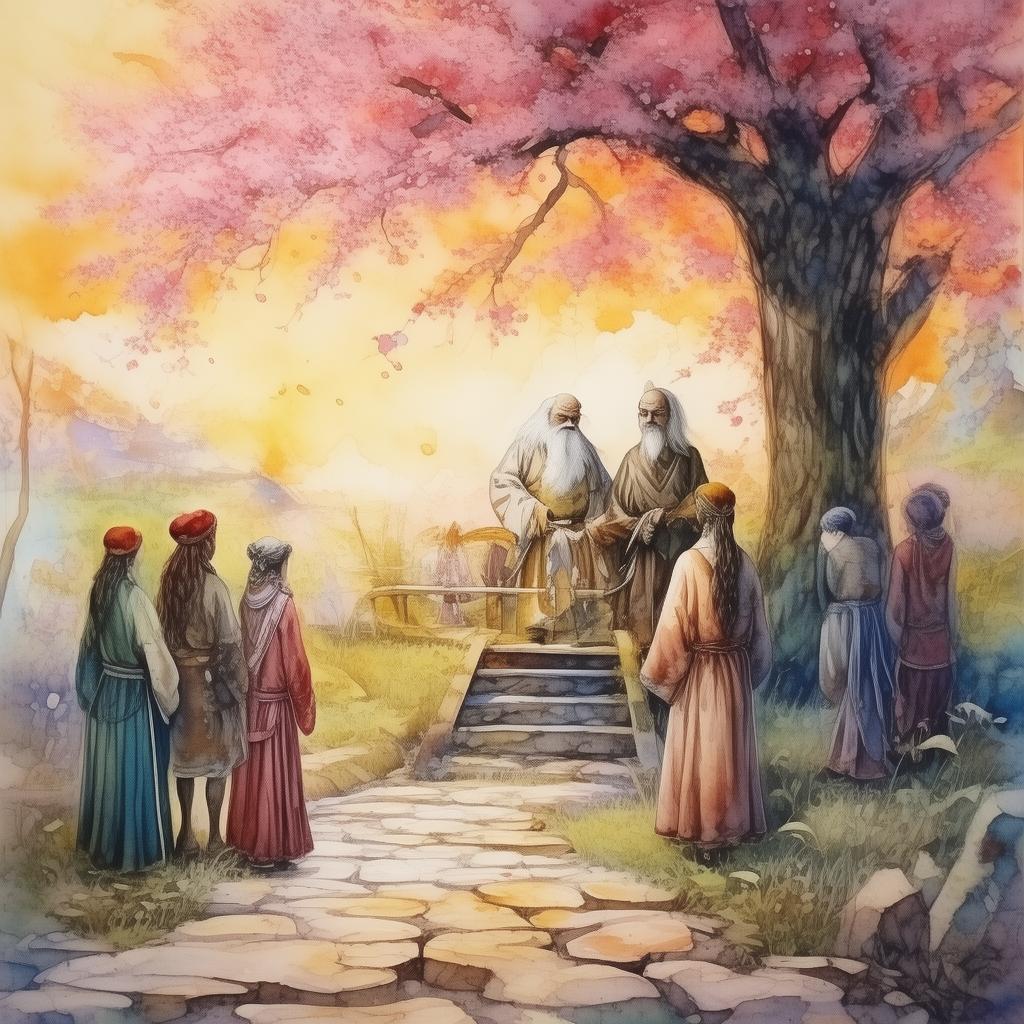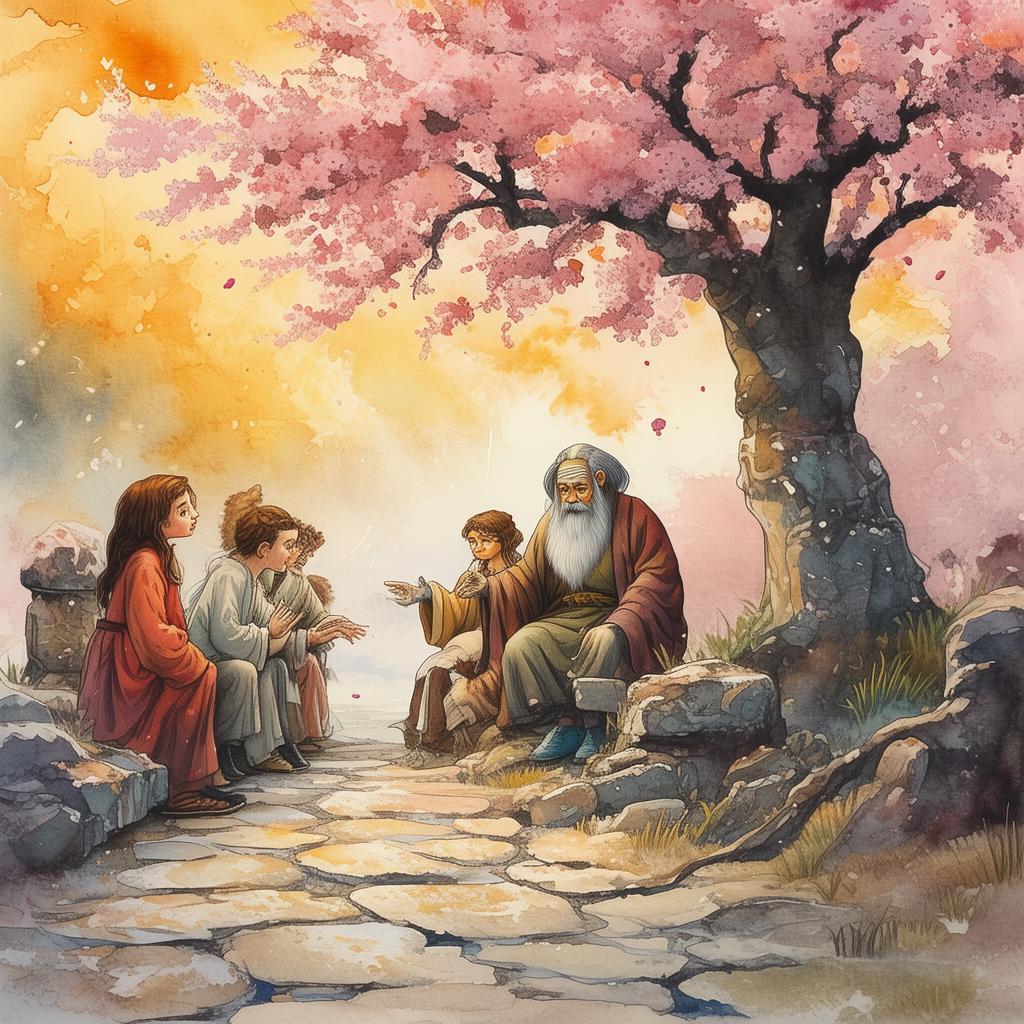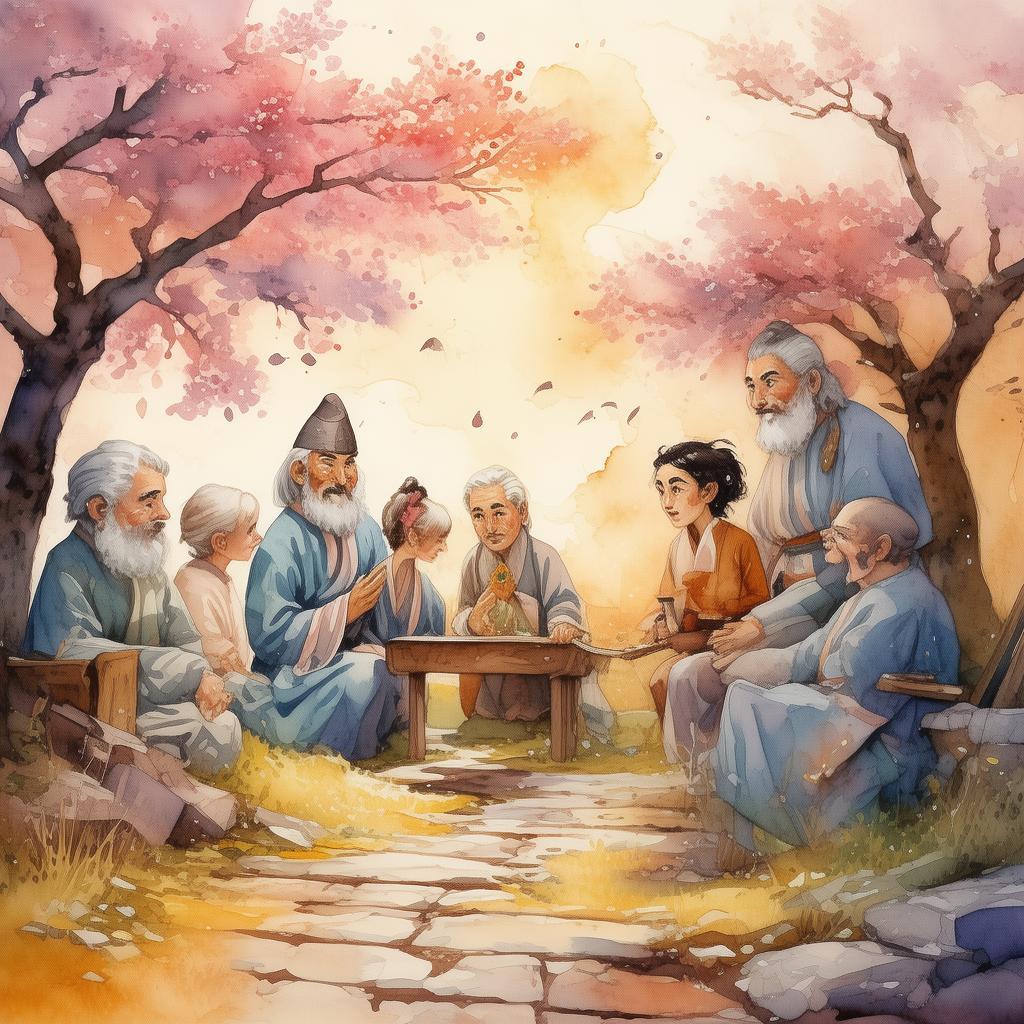The Path to Self-Discovery: A Journey Through the Labyrinth of Identity
In a quaint village nestled between rolling hills and whispering forests, there lived a young poet named Ming. Ming had a gift for words, a talent that seemed to bubble up from the depths of his soul, yearning to be shared with the world. His verses were both enchanting and melancholic, a reflection of his inner turmoil. Ming's journey to self-expression was fraught with riddles, both those posed by the world and the ones he posed to himself.
One day, Ming stumbled upon a worn-out, leather-bound book hidden behind a stack of old tomes in the village library. The book was a collection of riddles and poems, compiled by a wandering poet who had vanished into the mists of time. Intrigued by the title, "The Wandering Poet's Riddle: A Journey to Self-Expression," Ming couldn't resist the urge to delve into its mysteries.
The first riddle in the book was simple yet profound: "I am not alive, yet I grow; I do not have lungs, but I need air; I do not have a mouth, yet water kills me. What am I?" Ming puzzled over this riddle for days, his thoughts wandering through the fields and forests of his imagination. He realized it was a metaphor for life itself, a journey that was not just about living but about growing, adapting, and facing the inevitable.
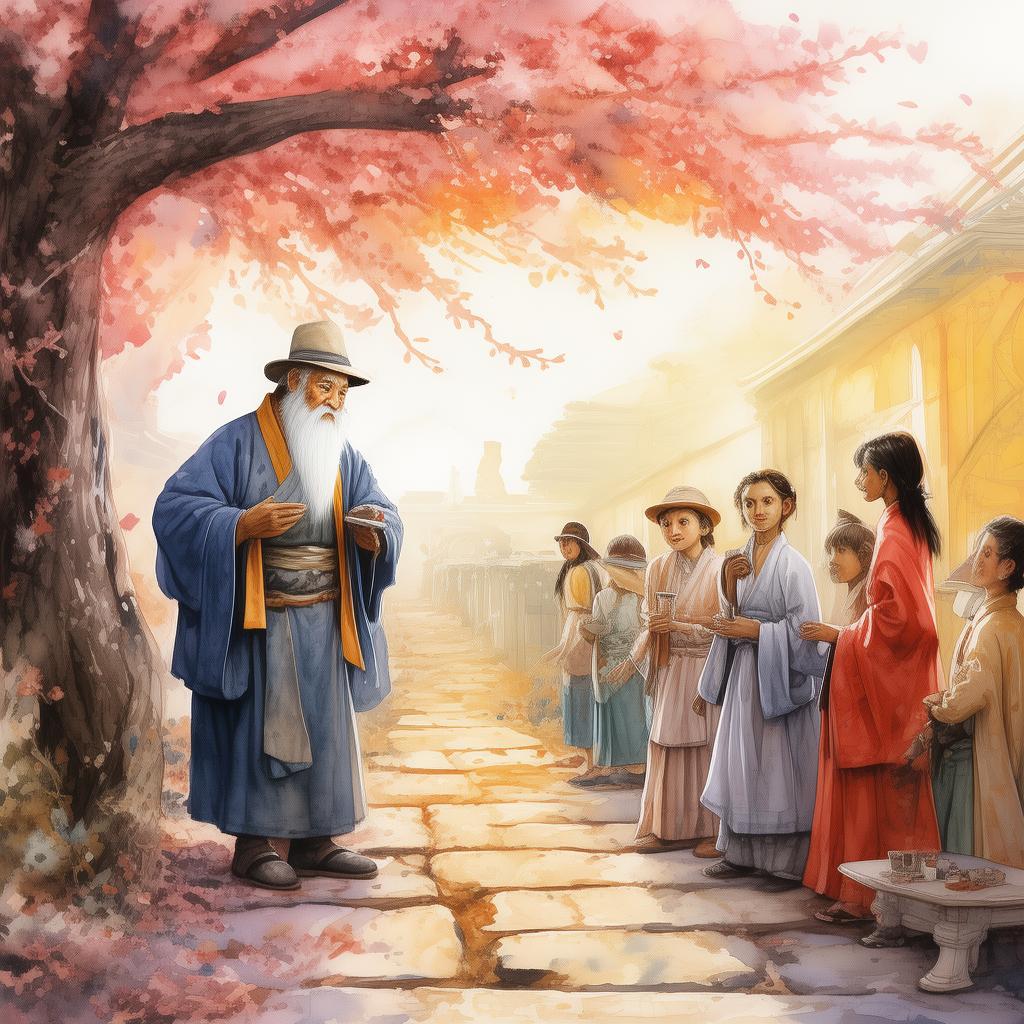
As Ming continued to explore the riddles, he found each one a stepping stone on his path to self-discovery. One riddle spoke of a river that could not be crossed, and another of a mirror that reflected everything but the truth. Ming began to see parallels in his own life. He was like the river, constantly flowing, yet unable to cross certain barriers within himself. He was like the mirror, reflecting his outer self but concealing the true essence of his inner world.
One evening, as the moonlight cast a silver glow over the village, Ming wandered into the labyrinth of the forest. It was a place said to be the abode of the Wandering Poet himself. Ming's heart raced with a mix of fear and anticipation as he stepped into the maze of stone pathways and shadowy corners. The labyrinth was a metaphor for his own mind, full of twists and turns, dead ends, and unexpected revelations.
In the heart of the labyrinth, Ming found a stone tablet inscribed with the final riddle: "I speak without a mouth and hear without ears; I have no body, but I come alive with the wind. What am I?" Ming realized this was a riddle about the soul, the part of him that was beyond the physical, the part that lived in the wind and the moonlight.
As he wandered deeper into the labyrinth, Ming felt himself changing. His thoughts became clearer, his emotions more profound. He understood that the riddles were not just about finding answers; they were about asking questions, about facing his fears, and about embracing the unknown. He began to see the world and himself in a new light.
Finally, after what felt like an eternity, Ming emerged from the labyrinth, not as a different person, but as a more self-aware one. The Wandering Poet's riddles had shown him the path to self-expression, and he realized that his own poetry was his way of sharing his journey with the world.
Ming returned to his village, his heart full of newfound purpose. He began to write with a clarity and depth that he had never known before. His verses flowed like the river through the labyrinth, his words a reflection of his soul's journey. People from far and wide came to hear him recite his poetry, each line resonating with the truth that they too were on their own path to self-discovery.
And so, Ming became a wandering poet in his own right, carrying the legacy of the Wandering Poet, a beacon of hope and enlightenment for all who sought the path to self-expression. Through his words, Ming taught others that the journey to self-discovery was not about reaching a destination, but about embracing the journey itself.
✨ Original Statement ✨
All articles published on this website (including but not limited to text, images, videos, and other content) are original or authorized for reposting and are protected by relevant laws. Without the explicit written permission of this website, no individual or organization may copy, modify, repost, or use the content for commercial purposes.
If you need to quote or cooperate, please contact this site for authorization. We reserve the right to pursue legal responsibility for any unauthorized use.
Hereby declared.
